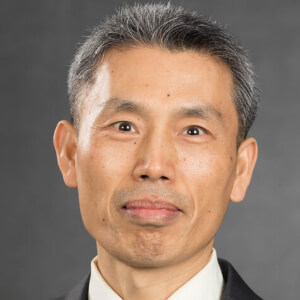Title : Interaction between actin and quantum dots
Abstract:
Quantum dots (QDs) are fluorescent nanoparticles with a broad emission range. As such, QDs are high sought after for optical-based biomedical applications. Recently, studies have shown the toxicity of quantum dots, which raised concerns regarding the use of QDs in biomedical technologies. In particular, there is still a lack of research on the cytotoxicity of quantum dots when exposed to cells due to random interactions with surrounding macromolecules.. In our study, we investigated the direct interaction between QDs and a cytosolic protein to determine if modification of biomolecule upon interaction is one of the factors behind QDs’ toxicity. Using Saccharomyces cerevisiae as a model organism, we performed Shotgun Proteomics to identify QD binding proteins. These identified proteins are associated with translation, mitochondria, vesicular trafficking, and the actin cytoskeleton. As our in vitro culture study showed that QDs caused abnormal actin cytoskeleton organization in yeast, we decided further to study the interaction between QDs and actin using a series of biochemical experiments. Through native polyacrylamide gel electrophoresis, we confirmed the binding of G-actin with QDs. Furthermore, we observed a temperature-dependent quenching of actin’s intrinsic fluorescence by QDs, which suggests a static interaction. In addition, our data revealed an altered absorption spectrum in G-actin protein upon interaction with QDs. This further verifies the static interaction between G-actin and QDs as well as suggests actin-QDs complex formation. Using Circular Dichroism spectroscopy, we also found that QDs induced significant changes to the secondary structure of G-actin. Overall, our research characterized the interaction between QDs and G-actin, and proposed protein structure alteration resulting from direct interaction as a possible mechanism for QDs toxicity. The potential impact of QD binding to G-actin on actin polymerization and disassembly will be assessed.
Audience Take away:
- Quantum dot chemical and physical properties
- Assessment of Quantum-dot interaction with proteins
- Assessment of QD-mediated protein assembly and disassembly



